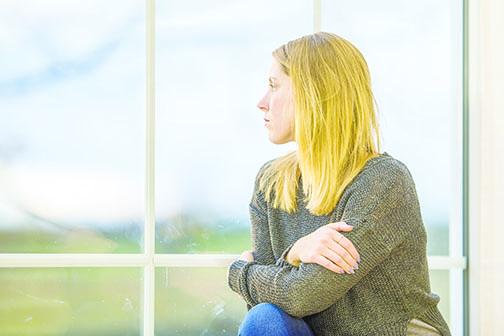Mental health shouldn’t be neglected during isolation, medical officials say
With physical health concerns related to COVID-19 prevalent, health officials say it’s important to not overlook mental health care during the pandemic.
Along with regular hand washing, health officials say social distancing is important to reduce the spread of the disease. However, that can also take a toll on a person’s mental health as residents are confined to their homes and in some cases quarantined.
The Centers for Disease Control and Prevention said it’s important for people to learn how to cope with stress brought on by fear and anxiety with the outbreak of the coronavirus disease.
One local health official said a way to cope with stress is trying to stick with a schedule.
“When residents are feeling confined at home due to forced social distancing or self-quarantine, they should make a daily to-do list,” said Nancy Russo, vice president of Putnam County services with SMA Healthcare in Palatka.
She has a doctorate of philosophy in Christian counseling and a licensed mental health counselor.
“Making a schedule and sticking to it will more closely resemble a work or school day, giving them a sense of normalcy,” Russo said.
Russo said there are steps people can take to reduce their fear and anxiety, including:
n Getting enough rest.
n Eating a healthy diet.
n Refraining from alcohol and mood-altering substances
n Reducing or eliminating caffeinated drinks.
“People should also take time for some type of exercise each day,” Russo said. “And when they feel intense fear and anxiety, they should practice grounding themselves by tricking their brain to think about something else – what are three things you hear, three things you see that are pretty, close your eyes and feel the breeze or sun on your face and take deep slow breaths and pray. The key is to refocus your thoughts, focus on your senses and relax your minds.”
Russo said when faced with a crisis, anxiety is the immediate reaction and the antidote for anxiety is trying to look for something a person can control – such as shopping and hoarding items like toilet paper.
“Since we can’t control what is happening with the COVID-19 pandemic, we turn to what we can control and this is why we see people shopping,” Russo said.
“They feel they are doing their part by stocking up. Unfortunately, the impact of social media-driven communication is what has escalated the hoarding behavior. Then human instinct takes over due to fear of being without something and that something, in this case, is toilet paper.”
Russo said SMA is planning to develop a weekly support group online for residents dealing with anxiety or depression as a result of coronavirus concerns. She said plans are for the online sessions to begin 3-4 p.m. April 8. For more information, call 385-1243.
Social distancing can create fears and anxiety, according to Dr. Bridget Rivera, a Jacksonville-based psychologist who is the academic department chairwoman for the Undergraduate Psychology Department at Purdue University Global.
“We’re being asked to isolate with social distancing and that can create some pretty powerful negative impacts unfortunately on people’s mental health,” Rivera said.
“We’re social beings and we’re supposed to interact with one another. There’s a natural, healthy craving for people to want to connect, especially during the time of a crisis.”
Rivera said people have to create positive pathways in the brain to focus on something they enjoy to get away from everything related to coronavirus.
She also is concerned suicide rates will go up, along with child abuse rates and divorce rates during the pandemic.
“The bottom line is for people to reach out for support when they feel like they need it,” Rivera said. “Isolation is incredibly deterrent to our mental health.”
The CDC has a Disaster Distress Hotline at 800-985-5990.
The National Suicide Prevention Lifeline is 800-273-8255.

